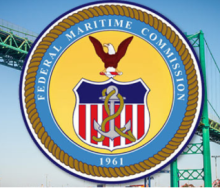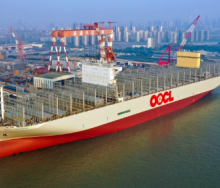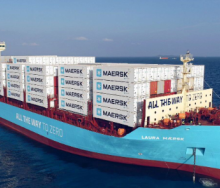New research undertaken by the Institute of Human Rights and Business has shown that 31% of seafarers have been asked to pay a recruitment fee to get a job on board a merchant vessel.
Of these, 28% were asked within the last eight months (ie in 2024) - demonstrating that this practice, despite being illegal under the Maritime Labour Convention1, is current and endemic.
Furthermore, seafarers are accumulating intolerable levels of debt in order to secure a position on board a ship – with some being charged up to, or even more than, $10 000 for a job at sea, according to the research.
74% of those asked to pay a fee did so. A staggering 80% of seafarers asked to pay illegal recruitment fees did not report the incidents to authorities, with many unaware that this practice is illegal. The payment of illegal recruitment fees is not only a financial burden for seafarers but also has a serious impact on their mental health, says the report. The resulting stress can lead to unsafe working conditions on board ships. Safety on board could also be put at risk as certificates and seafaring experience are ‘for sale’, and therefore priority is given to those who are prepared to pay the fee over the best candidates. “This illegal practice must end. Shipping companies and cargo owners must be made aware of these malpractices and ensure that seafarers aboard vessels they are associated with are not victim to illegal recruitment fees. All players involved in the shipping industry must come together to advocate against the charging of recruitment fees,” the authors say.
“This updated research, like the results of last year’s briefing, demonstrates that the practice of charging seafarers recruitment fees is widespread and endemic in the industry, and that resulting levels of debt are pushing many seafarers towards modern slavery conditions. ITF has been active for several years in exposing and blacklisting corrupt manning agencies, including creating an online mechanism to report scams and fake jobs.
“Mission to Seafarers also works on individual cases and at advocacy level on the issue. The Maritime Anti-Corruption Network (MACN) is committed to reducing corruption in the maritime industry by empowering the next generation of seafarers. Its approach is grounded in the rights established by the Maritime Labour Convention."
Through specialised training for cadets and young seafarers, MACN equips them with the knowledge to recognise and resist corrupt practices, fostering a more ethical maritime environment.
Several other organisations are working to protect seafarers’ interests – but ultimately shipping companies need to ensure that seafarers employed on board their ships have not been charged recruitment fees to secure their work contracts.
They need to create opportunities for seafarers to report incidents and provide multiple and reliable channels to find a job without being charged recruitment fees and seafarers need to know how and where to report such practices, the report says.
“There needs to be a direct link between shipping companies and seafarers so that seafarers have a safe gateway to their employers.”













